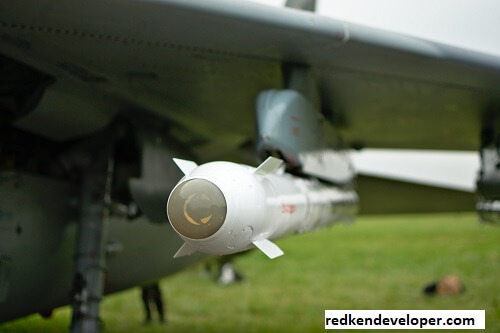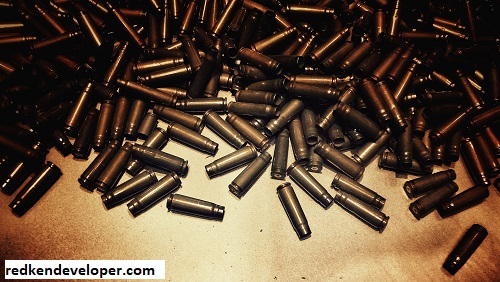Develops Ncoer Bullets:
Mastering the Building of NCOER Bullets is a Professional Guide
Develops Ncoer Bullets Noncommissioned Officer Evaluation Report is a very significant document in the U.S. Army, in evaluating the performance and potential of the NCOs. Develop NCOER Bullets Accurate and effective NCOER bullets communicate what has been achieved, what one can do, and what one contributes as an NCO to the unit and the Army. Develops Ncoer Bullets blog post, we will be discussing its importance, best practices in developing them, and tips that ensure that bullets truly reflect what he has done.

Understanding the NCOER:
Develops Ncoer Bullets:
The NCOER serves three different purposes. It is a record of NCO’s performance, and career progression, and also facilitates promotions, assignments, and other opportunities. The Develops NCOER Bullets included in an NCOER are an important constituent that enables the evaluators to understand the effectiveness and impact of an NCO.
Significance of NCOER Bullets:
Develops Ncoer Bullets:
Performance Evaluation: Develop Ncoer Bullets to capture the NCO’s achievements and contributions to his/her professional assignments. They are used in determining employee performance for a specified period and will play a big role in future assignments and promotions.
- Career Development: Crafty Develops Ncoer Bullets can be the difference between making or breaking an advancement opportunity for an NCO. Strong, positive, and specific bullets can establish an NCO as a leader among his peers, thus bringing high recognition and great opportunities for advancement.
- Documentation: The NCOER is an official record of NCO performance. The clear and concise bullets offer documentation that can be used when referring back to previous evaluations or as a factor in making decisions concerning personnel changes.
Best Practices for Writing NCOER Bullets:
Develops Ncoer Bullets:
Writing effective Develops Ncoer Bullets is not left to chance. Here are some best practices to remember when writing these crucial statements:
1. Use the STAR Method:
- The STAR method is a good framework for using in structuring NCOER bullets. It serves to ensure that each one tells a full story.
Situation: Briefly describe the context in which the NCO operated.
Task: Define specifically what task or responsibility the NCO was given.
Action: Detail the specific actions the NCO took to address the task.
Result: Emphasize the outcome of those actions. Wherever possible, express the outcome as quantifiable results.
Bullet: “Manage a team of five that conducted a month-long exercise which was completed successfully (Situation), wherein all logistics planning were supervised (Task), leading to the 30% improvement in team performance metrics (Result)”.
2. Specific and Measurable:
Ambiguous remarks will dilute the impact of Develops Ncoer Bullets. Use specific measurements and examples as much as possible in presenting achievements. The quantifiable accomplishments lend credibility and ballast to the assertions being made.
Example:
Instead of, “Improved unit readiness,” use, “Increased unit readiness rates by 15 percent through more effective training programs and regular exercises.”
3. Activate Action Verbs:
Start every bullet with a strong action verb that will give the bullets a richer flavor but more importantly, pinpoint the proactive part of the NCO in achieving.
Action Verbs: Led, Implemented, Achieved, Developed, Coordinated, Trained, Enhanced, Streamlined, etc.
4. Army Values and Competencies:
When preparing NCOER bullets, keep them focused on the Army’s core values: Loyalty, Duty, Respect, Selfless Service, Honor, Integrity, and Personal Courage, and the Army’s competencies of NCOs primarily in leadership, training, and operations.
Example:
“Exemplified the Army value of Selfless Service by volunteering for additional duty assignments, which have enhanced unit esprit de corps and morale.”
5. Avoid Jargon and Abbreviations:
While some military terminology will inevitably be unavoidable, be as clear as possible. Avoid overuse of abbreviations and technical terms that might not be known to the reader unfamiliar with such terms. This is an important concern for assessors who may not be aware of the NCO’s actual responsibilities.
6. Use Proper Professional Vocabulary and Diction:
NCOER bubbles reflect professionalism and should have a professional tone. Do not use slang or colloquialisms, and the language needs to be professional, not cute, funny, or otherwise.
Instead of, “Good job to lead,” write, “Exceptional leadership. Successfully led a diverse group.”

7. Give Feedback and Edit:
Get suggestions from coworkers and even supervisors by sharing the draft bullets you wrote. Achieving uniformity in your bullets can help build statements, but also may expose areas where you may unintentionally overlook certain things.
Common Challenges When Building NCOER Bullet:
Develops Ncoer Bullets:
Building good NCOER bullets is important, but it can also be pretty challenging. Here are some common pitfalls:
1. Determine what you accomplished:
Some NCOs may not know what they accomplished. You should take time to reflect on the past evaluation period and look beyond the major things done, focusing on daily tasks to determine what had a major positive impact.
Tip: Keep a performance journal during the cycle to record accomplishments, feedback you receive, and challenges you overcome.
2. Striking the Balance between Humility and Self-Promotion:
Many NCOs seem to struggle with self-promotion through a culture of humility. However, the NCOER is a showcase for your skills and achievements so you need to come across as humble yet able to speak for yourself.
Tip: Write accomplishment bullets as contributions to the team or unit’s success, emphasizing teamwork as well as the personal impact.
3. Time Constraints:
Preparation of NCOER bullets can be very time consuming, and the added pressure of imminent deadlines can make it even worse. Planning and organizing are therefore critical.
Tip: Draw the bullets much sooner than closing in on the deadline. This allows for more time spent giving a fuller representation of performance rather than rushing through them.
Effectiveness of NCOER Bullets:
Develops Ncoer Bullets:
Carefully constructed NCOER bullets can indeed impact an NCO’s career. Good bullets are powerful because they demonstrate the NCO’s contribution to the unit and act as much recognition far beyond unit levels to the larger Army community.
Assures readiness to assume greater responsibilities:
Develops Ncoer Bullets:
Influence Assignments: The NCOER determines future assignments as it has some influence on postings or preferred postings. It could be the factor that decides a good line of promotion.
The Noncommissioned Officer Evaluation Report is a very significant document in the U.S. Army, in evaluating the performance and potential of the NCOs. Accurate and effective NCOER bullets communicate what has been achieved, what one can do, and what one contributes in an NCO to the unit and the Army. In this blog post, we will be discussing its importance, best practices in developing them, and tips that ensure that bullets truly reflect what he has done.
Understanding the NCOER:
Develops Ncoer Bullets:
The NCOER serves three different purposes. It is a record of NCO’s performance, career progression, and also facilitates promotions, assignments, and other opportunities. The bullets included in an NCOER are an important constituent that enables the evaluators to understand the effectiveness and impact of an NCO.
Significance of NCOER Bullets:
Develops Ncoer Bullets:
- Performance Evaluation: NCOER bullets capture the NCO’s achievements and contributions to his/her professional assignments. They are used in determining employee performance for a specified period of time and will play a big role in the future assignment and promotion.
- Career Development: Crafty bullets can be the difference between making or breaking an advancement opportunity for an NCO. Strong, positive, and specific bullets can establish an NCO as a leader among his peers, thus bringing high recognition and great opportunities for advancement.
- Documentation: The NCOER is an official record of NCO performance. The clear and concise bullets offer documentation that can be used when referring back to previous evaluations or as a factor in making decisions concerning personnel changes.
Best Practices for Writing NCOER Bullets:
Develops Ncoer Bullets:
Writing effective NCOER bullets is not left to chance. Here are some best practices to remember when writing these crucial statements:
1. Use the STAR Method:
The STAR method is a good framework for using in structuring NCOER bullets. It serves to ensure that each one tells a full story.
- Situation: Briefly describe the context in which the NCO operated.
Task: Define specifically what task or responsibility the NCO was given. - Action: Detail the specific actions the NCO took to address the task.
- Result: Emphasize the outcome from those actions. Wherever possible, express the outcome as quantifiable results.
- Bullet: “Manage a team of five that conducted a month-long exercise which was completed successfully (Situation), wherein all logistics planning were supervised (Task), leading to the 30% improvement in team performance metrics
2. Specific and Measurable:
Ambiguous remarks will dilute the impact of an NCOER. Use specific measurement and example as much as possible in presenting achievements. The quantifiable accomplishments lend credibility and ballast to the assertions being made.
Instead of, “Improved unit readiness,” use, “Increased unit readiness rates by 15 percent through more effective training programs and regular exercises.”
3. Activate Action Verbs:
Start every bullet with a strong action verb that will give the bullets a richer flavor but more importantly pinpoint the proactive part of the NCO in achieving.
Action Verbs: Led, Implemented, Achieved, Developed, Coordinated, Trained, Enhanced, Streamlined, etc.
4. Army Values and Competencies:
Develops Ncoer Bullets:
When preparing NCOER bullets, keep them focused on the Army’s core values: Loyalty, Duty, Respect, Selfless Service, Honor, Integrity, and Personal Courage, and the Army’s competencies of NCOs primarily in leadership, training, and operations.
Example:
“Exemplified the Army value of Selfless Service by volunteering for additional duty assignments, which have enhanced unit esprit de corps and morale.”
5. Avoid Jargon and Abbreviations:
While some military terminology will inevitably be unavoidable, be as clear as possible. Avoid overuse of abbreviations and technical terms that might not be known to the reader unfamiliar with such terms. This is an important concern for assessors who may not be aware of the NCO’s actual responsibilities.
6. Use Proper Professional Vocabulary and Diction:
Develops Ncoer Bullets:
NCOER bubbles reflect professionalism and should have a professional tone. Do not use slang or colloquialisms, and the language needs to be professional, not cute, funny, or otherwise.
Example:
Instead of, “Good job to lead,” write, “Exceptional leadership. Successfully led a diverse group.”
7. Give Feedback and Edit:
Develops Ncoer Bullets:
Get suggestions from fellow coworkers and even supervisors by sharing the draft bullets you wrote. Achieving uniformity in your bullets can help build statements, but also may expose areas where you may unintentionally overlook certain things.
Common Challenges When Building NCOER Bullet:
Develops Ncoer Bullets:
Building good NCOER bullets is important, but it can also be pretty challenging. Here are some common pitfalls:
1. Determine what you accomplished:
Some NCOs may not know what they accomplished. You should take time to reflect on the past evaluation period and look beyond the major things done, focusing on daily tasks to determine what had a major positive impact.
Tip: Keep a performance journal during the cycle to record accomplishment, feedback you receive, and challenges you overcome.
2. Striking the Balance between Humility and Self-Promotion:
Develops Ncoer Bullets:
Many NCOs seem to struggle with self-promotion through a culture of humility. However, the NCOER is a showcase for your skills and achievements so you need to come across as humble yet able to speak for yourself.
Tip: Write accomplishment bullets as contributions to the team or unit’s success, emphasizing teamwork as well as the personal impact.
3. Time Constraints:
Preparation ofDevelops Ncoer Bullets can be very time consuming, and the added pressure of imminent deadlines can make it even worse. Planning and organizing are therefore critical.
Tip: Draw the Develops Ncoer Bullets much sooner than closing in on the deadline. This allows for more time spent giving a fuller representation of performance rather than rushing through them.
Effectiveness of NCOER Bullets:
Develops Ncoer Bullets:
Carefully constructed Develops Ncoer Bullets can indeed impact an NCO’s career. Good bullets are powerful because they demonstrate the NCO’s contribution to the unit and act as much recognition far beyond unit levels themselves to the larger Army community.

Assures readiness to assume greater responsibilities:
Develops Ncoer Bullets:
Influence Assignments: The Develops Ncoer Bullets determines the future assignments as it has some influence on postings or preferred postings. In fact, it could be the factor that decides a good line of promotion.